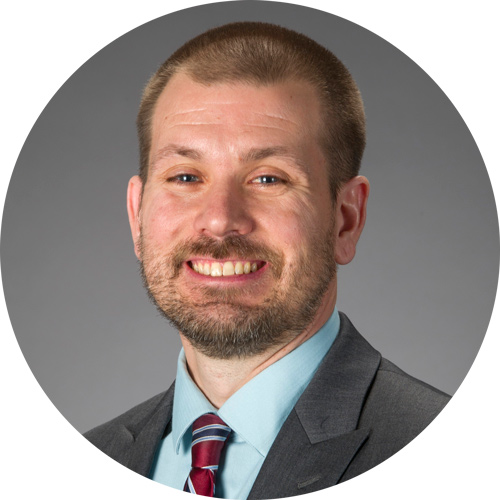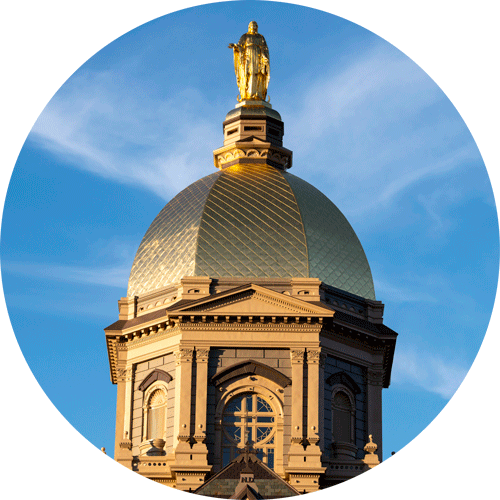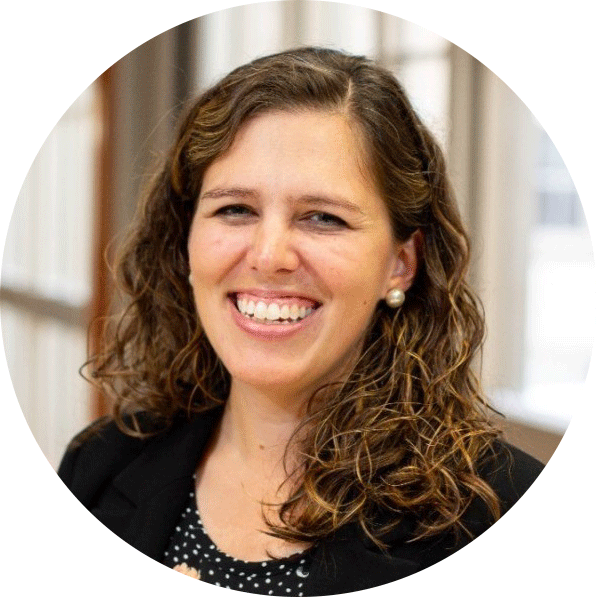Mentorship that Grows the Good
Since 2023, I have served as the Business Honors Program's Mentor Program Manager. We have grown the program considerably since then, and we have plans for yet further development in future years. Let me take this opportunity to tell you what our mentor program is all about.
The late Clayton Christensen warned his business students against the danger of not applying their business acumen to the most important enterprise of all: themselves. “It’s quite startling that a significant fraction of the 900 students that Harvard Business School draws each year from the world’s best have given little thought to the purpose of their lives,” he wrote.[1]
Fortunately for us at Notre Dame, conversations around life's purpose and meaning — what a life well-lived really looks like; what it means to be not only an excellent professional but also a true friend, a committed spouse, and a loving parent; how to be others-focused in a “me-first” world — are all part of the fabric of our campus. This characteristic is an asset, not an obstacle, to our students' success. This Notre Dame difference drives our strategic objective to increase mentorship opportunities for our undergraduates.
Effective mentorship is crucial for professional success. Yet many struggle to find the kind of mentorship that adequately addresses their needs.[2] This might be because the scope of mentorship in the business world is often restricted to career advancement concerns alone, with little discussion of the interplay between personal and professional needs and responsibilities. As one former CEO put it, “It is possible to give a mentee good career advice that is poor life advice.”[3]
Mentorship in the Business Honors Program
Since its inception in 2021, the Business Honors Program has provided in-person, one-on-one holistic mentoring to all its students, counting on the help of exceptional graduate students, advanced undergraduates, and local alumni. This mentorship invites students to engage in conversations of purpose, offering them the space and time to consider longer-term questions, such as:
- What is the ultimate goal of my life? Do I have a life mission? How do my career goals and desires fit into my broader life goals and desires
- What are the foundational relationships in my life, and how am I nurturing them? What obligations do these relationships in justice require of me?
- In what type of work could I make the best use of my gifts and talents? Do I apply my time and attention to the matters that truly reflect my highest priorities?
Mentorship in the Honors Program encourages students to consider career aspirations from the wider context of their lives as a whole, giving them a chance to articulate a personal vision for their lives and to set goals for themselves that align with that vision. This style of mentorship reflects our mission to challenge students to take seriously the call to serve others, using the intellectual, moral, and professional formation they receive to advance the common good and the integral development of society. As one honors student shares, “BHP mentorship has given me a few tools in navigating how to become a more well-rounded person, focused less on the materiality of success and more on finding my own inner purpose.”
By fostering a style of mentorship that carefully considers the global flourishing and happiness of each person, we hope our students, in turn, will themselves become the kind of mentors and advisors many workplaces so desperately need but cannot find.[4]
A New Initiative: Undergraduate Student-to-Student Mentorship
One of the ways we can challenge our students to “grow the good in business” is by offering them opportunities to support the integral development of their peers. Studies show that student-to-student mentorship programs are effective in helping incoming students (especially first-generation, international, special needs, etc.) experience a smoother transition to college life.[5] In addition to orienting them to the undergraduate experience, peer mentorship can help new students feel more “at home” in an academic setting.[6] The experience is also formative for the student mentors themselves, as mentoring fellow students requires them to practice skills and virtues such as attentive listening, patience, generosity, etc.[7]
This year, we launched several initiatives designed to create more opportunities for peer mentorship in Mendoza:
- Adding Mentorship to Maximizing Mendoza: This past fall, the Office of Undergraduate Studies and the Business Honors Program worked together to add a peer mentorship component to the existing Maximizing Mendoza course. This course was designed to better position first-year students for both academic and career discernment. About 45 seniors from the Honors Program volunteered to mentor Maximizing Mendoza students, and more than 90% of the 120-plus students in the course opted into the mentoring opportunity. We paired the students based on data from a pre-class survey, and pairs met about once a month, subject to the mentees’ preference. A meet-and-greet ice cream social at the beginning of the semester facilitated the first point of contact. Feedback from students has been overwhelmingly positive. First-year students appreciated the perspective and candor of the seniors, especially when they had a good idea of what they wanted to study and could be paired with a senior from their major. This semester, many of the pairs continue to meet, even without the course.
- Mentorship Training: To prepare for mentoring, BHP seniors attended a series of mentorship training sessions led by Accountancy Advisory Board Member (and BHP Mentor) Bobby Weltner (ND ’26, BBA ‘14), C.S.C. They covered topics such as how to foster greater self-awareness, self-acceptance, and self-giving; the importance of good questions[8]; how to encourage while also challenging others to grow; how to establish and maintain relationships based on trust, etc. The seniors also completed the OptimalWork Master Class, a program that coaches students and professionals to address difficulties in work and life with a growth mindset.
- Student-Led Discussion Groups on Human Flourishing: This semester, upperclassmen from the Honors Program are co-leading bi-weekly small group discussions with freshmen and sophomores around habits that lead to human flourishing, using the OptimalWork Master Class as a guide. These groups function autonomously: At the beginning of the semester, the group leader pairs chose a regular meeting time and place, as well as the direction of their discussions. Some groups meet over meals in the dining halls, while others meet in Mendoza.
Once a student gains clarity around the concrete direction they would like to pursue personally and professionally, they can seek out professional mentors that specifically pertain to their chosen field through existing mentoring opportunities at Notre Dame and Mendoza, including IrishCompass, the Wall Street Club, SIBC and so on. Since many students arrive unsure of their deeper motives and desires, holistic mentorship benefits all students, irrespective of their major or career plans.
Clayton Christensen worried that the “mechanism of the pursuit of achievement” would lead people to “inadvertently invest for lives of hollow unhappiness.”[9] Here at Notre Dame, we can offer our students the opportunity to avoid that trap through mentorship that is not afraid to ask the big questions.
In Notre Dame,
Helen
Helen Keefe
Mentor Program Manager
Business Honors Program
REFERENCES
[1] Clayton Christensen, "How will you measure your life?" Harvard Business Review 88, no. 7/8 (2010): 46-51. https://hbr.org/2010/07/how-will-you-measure-your-life.
[2] Mark Horoszowski, “How to Build a Great Relationship with a Mentor”, Harvard Business Review, 21 January 2020, https://hbr.org/2020/01/how-to-build-a-great-relationship-with-a-mentor.
[3] Rick Woolworth, “Great Mentors Focus on the Whole Person, Not Just Their Career”, Harvard Business Review, 9 August 2019, https://hbr.org/2019/08/great-mentors-focus-on-the-whole-person-not-just-their-career.
[4] Horoszowski.
[5] “Peer Mentoring for Student Success”, Hanover Research, July 2022.
[6] According to a recent mental health survey of college students, “personal relationships have the most positive impact on students’ mental health.” See “National Mental Health Survey”, Hanover Research, December 2024, p.4.
[7] Horoszowski.
[8] Alison Wood Brooks and Leslie K. John, “The Surprising Power of Questions,” Harvard Business Review, May-June 2018, https://hbr.org/2018/05/the-surprising-power-of-questions.
[9] Ibid, and How Will You Measure Your Life? Clay Christensen at TEDxBoston.







